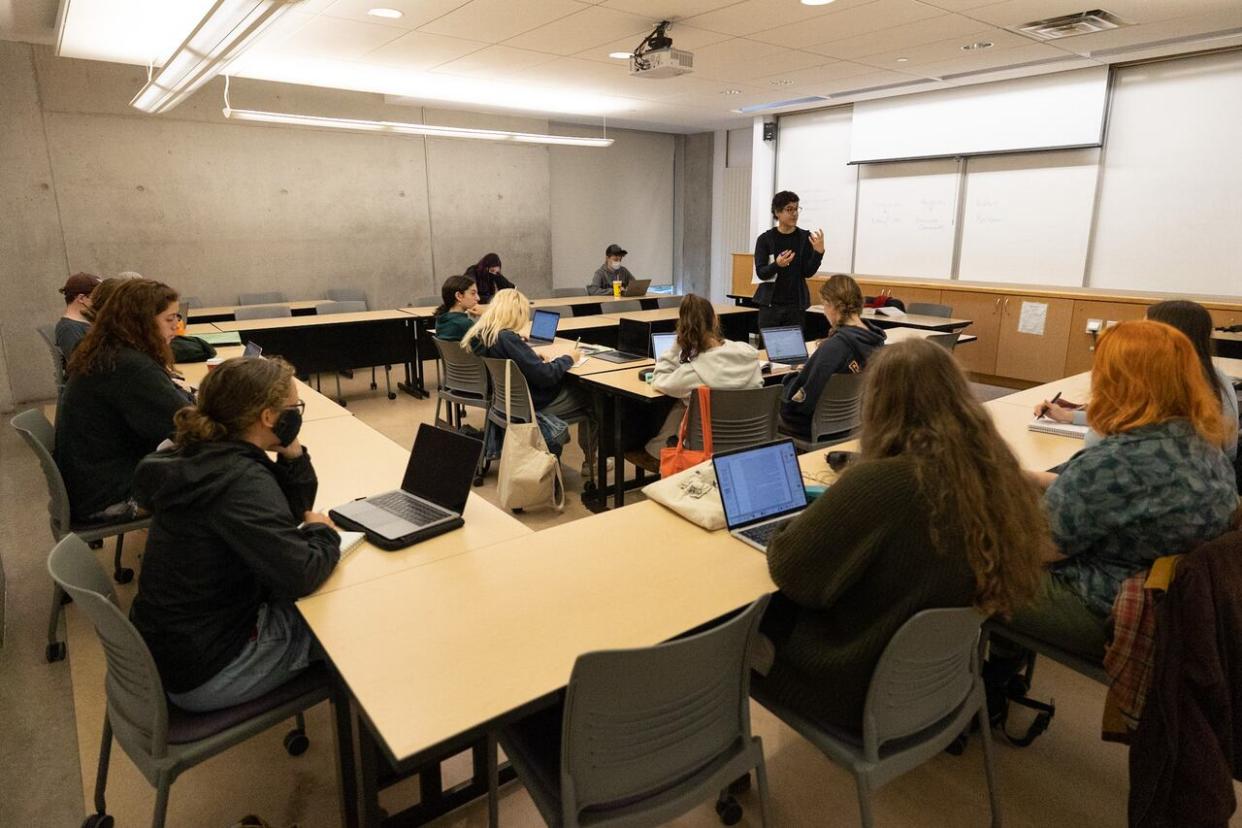'Shock, disappointment': N.S. student groups react to international student cap

Student groups in Nova Scotia are still working to get more details about a newly announced cap on the number of international students that will be admitted into Canada.
Citing, in part, pressures on housing and health care, the federal government made unveiled the change on Monday, setting an intake limit on international student permit applications.
The cap is expected to result in a 35 per cent decrease.
"Thirty five per cent isn't just a number. These are dreams. These are hopes," said Natalia Tola, the national deputy chair for the Canadian Federation of Students, which she said represents more than 530,000 students.
Tola, who is based in Nova Scotia and arrived as a student from Ecuador, said she has been hearing concerns from a lot of students.
"There is shock, disappointment and confusion," she said. "We've been doing follow-up meetings with the minister's office."
Tola is worried it is going to be harder for students to come to Canada to build better lives, and said some who are already here are wondering if the change might result in higher tuition fees.
N.S. working to 'assess impact'
The Nova Scotia government said in a statement it is continuing to work with the federal Department of Immigration Refugees and Citizenship Canada to "understand details and assess impact and options for the province."
It does not have a timeline to share yet about when more will be known.
However, the province said it has already been acting on some of the pressures students have been facing, including by adding 620 new beds at seven Nova Scotia Community College campuses, and by investing in the Tartan Downs project in Sydney and renovations to the Atlantic School of Theology in Halifax, the statement said.
'I hope this thing works well for students'
The president of the Cape Breton Students' Union shares some of Tola's concerns, but said there are some positives in the announcement.
Sahilpreet Singh Chatha is pleased to see those pursuing master's and doctoral degrees are not included in the cap.
He's hoping the change helps address some of the issues in Sydney.
Enrolment numbers from October of last year showed that about three quarters of Cape Breton University's students were from overseas.
He said a shortage of housing has led to many living outside Sydney, where it can also be tough to find work.
"I hope this thing works well for students who are already here and the ones who are coming in too, so that there is a little bit more space for them to live in and more jobs they can work," Singh Chatha said.
In a news release, the federal government said it will be allocating a portion of the cap to each province and territory "who will then distribute the allocation among their designated learning institutions."
It said the measures will be in place for two years.
MORE TOP STORIES

